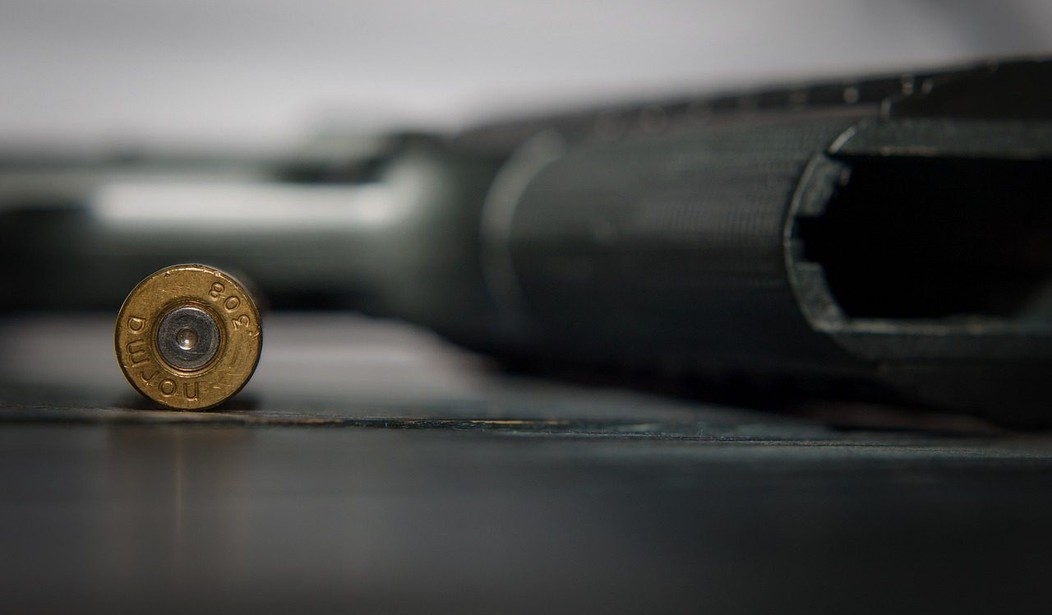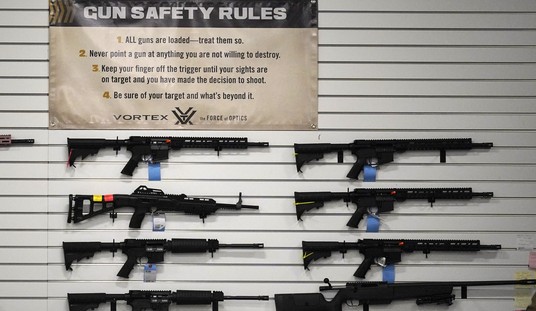Non-felonious disqualifiers for firearm possession and procurement are ripe for repeal/challenge across the country. The battle on who can and can’t be allowed to exercise their Constitutional right is waging on. There are fair enough indicators out there that if we look through things through the Rahimi lens, not many of these nonviolent/non-felonious disqualifiers meet the analogue of “our Nation’s firearm laws have included provisions preventing individuals who threaten physical harm to others from misusing firearms.” In a recent filing in the District of Columbia, we have an individual fighting a meritless disqualifier.
Jabari Leon Dotson was denied the ability to register a handgun in D.C. The complaint alleges that the Metropolitan Police Department’s “denial of that registration application, stat[ed], ‘On August 17, 2015, the MD Court system found probable cause to charge you with “Unlawful Possession of a Firearm”.’”
The filing further observed that Dotson was “found guilty [of Unlawful Possession of a Firearm]. The aforementioned offense is a weapons offense and as such your conviction disqualifies you from firearm registration pursuant to DCC § 7-2502.03(a)(2).”
Code of the District of Columbia § 7–2502.03. Qualifications for registration; information required for registration states:
(a) No registration certificate shall be issued to any person (and in the case of a person between the ages of 18 and 21, to the person and the person's signatory parent or guardian) or organization unless the Chief determines that such person (or the president or chief executive in the case of an organization):
…
(2) Has not been convicted of a weapons offense (but not an infraction or misdemeanor violation under § 7-2502.08, § 7-2507.02, § 7-2507.06, or § 7-2508.07) or a felony in this or any other jurisdiction (including a crime punishable by imprisonment for a term exceeding one year);
The event in question dated back to 2015 in Maryland and concerned a nonviolent possessory charge. Dotson was pulled over for an alleged speeding violation and a “search of the vehicle by Park Police disclosed a handgun under the driver’s seat and marijuana in Plaintiff’s possession.” Subsequently, Dotson “was convicted in the United States District Court for the District of Maryland of violating 36 C.FR. § 2.35(b)(2) (possession of a controlled substance) and 36 C.F.R § 2.4(b) (possession of a loaded weapon in a vehicle).”
On June 27, 2024 Case 1:24-cv-01864-LLA, Dotson v. The District of Columbia et.al. was filed in the U.S. District court for the District Of Columbia District.
Acting on behalf of Dotson are attorneys George L. Lyon, Jr.and Matthew J. Bergstrom from Arsenal Attorneys. The Dotson filing is one of three remarkable Second Amendment pieces of litigation that have been filed by Lyon in the last month. We covered a challenge to D.C.’s so-called “assault weapons” prohibitions, and there’s another case we’ll be covering concerning “off body carry.”
Beyond the facial Constitutional hurdles that need to be leapt over, the scenario surrounding Dotson’s arrest does not suggest his behavior would make him an “individual[] who threaten[s] physical harm to others from misusing firearms.”
We don’t know what the threshold of Rahimi really is, but we can turn to the case for guidance that a disqualified individual has to have had due process under the law and has been proven to have violent tendencies. Dotson does not fit that description.
The filing addresses Rahimi in their request for relief:
Nonetheless, an individualized determination of dangerousness would likely support disarming one of the People in the view of U.S. Solicitor General Prelogar. See Transcript of Oral Argument, United States v. Rahimi, Case No. 22-915, at Tr. 12:17-23 (Nov. 7, 2023) (“With respect to responsibility in particular, our understanding of what history and tradition reflect and how this Court has used the term is that it's identifying those whose possession of firearms presents an unusual danger beyond the ordinary citizen.”) See also Id. at 13:14-22 (“We think that here there is a direct link under the responsible citizens principle to danger, and we think that the disarmament provision I'm defending here, Section 922(g)(8), clearly satisfies that link because it requires individualized findings of dangerousness and a legislative consensus that individuals in this category present the requisite level of danger.”)
D.C. has a high burden to meet when proving their law is Constitutional. The brief further points out the only real analogues the gun control crowd has that support disarmament wouldn't hold in court today.
Indeed, we are aware of no such distinctly similar or even relevantly similar law in the Nation’s history. To be sure there were laws in the founding period that disarmed disfavored groups that were considered “dangerous,” including Native Americans, slaves, freed blacks and during the revolution British loyalists. All of these categorical classifications would be held unconstitutional today under the 5th and 14th Amendments’ due process clauses. See Trump v. Hawaii, 585 U.S. 667, 710 (2018) (overruling Korematsu v. United States, 323 U.S. 214 (1944)).
How the court is going to view this challenge to this disqualifying element is not yet known. Like Heller, this case could have far-reaching repercussions. I wouldn’t be shocked if the District tried to moot the case by changing the law. Further, if this does go to arguments and the District fails to uphold the infringement, I personally doubt they’d appeal considering their exceptionally bad track record.
We’ll be following this case and be reporting back with details as they become available.








Join the conversation as a VIP Member